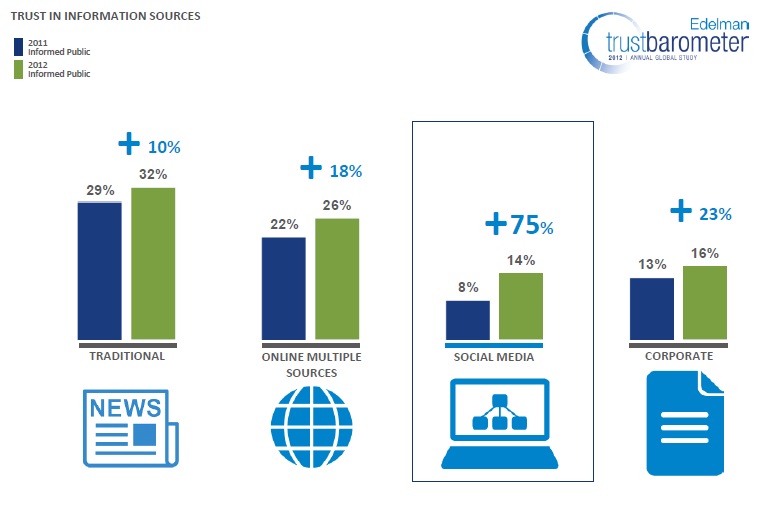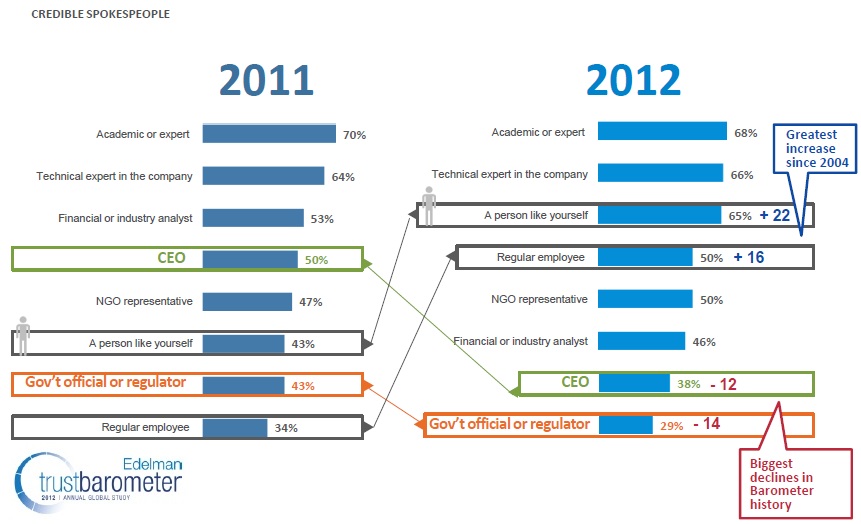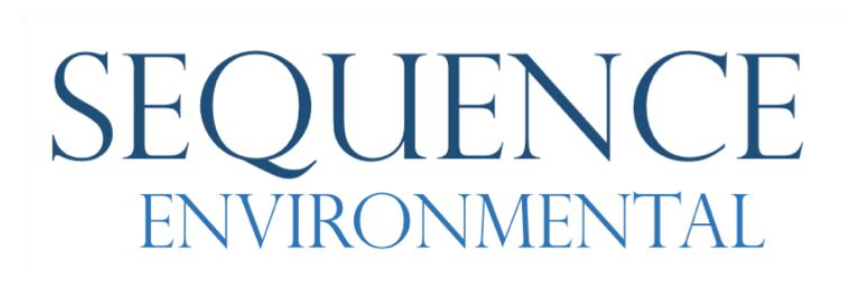It’s that time of year. Edelman have just published their 2012 Trust Barometer. It looks at trust in government, business, media, and NGOs, as well as different communications channels and sources. I’ve embedded it down below.
Unsurprisingly, trust in government has massively dropped. But what’s the score for businesses? Cutting right down to it, there’s two findings I find particularly significant:
1. There has been a dramatic increase in trust in social media – it is now at almost the same level as corporate information sources:
2. There has been a massive drop in trust in CEOs, while trust in peers (regular employees and ‘people like yourself’) is increasing dramatically:
Synthesised, the implications are clear:
Companies who help their employees tell their corporate story, in blogs and social media, will be trusted more than those who just use traditional corporate communications resources such as press releases and corporate news sites.
Plus, the report also shows that the majority of people need to hear a message three to five times before they finally trust a source.
Which means that businesses need to ‘up’ the frequency and quality of communications to succeed in building trust.
But why is trust so important to your business?
In today’s ‘social’ business environment, trust is more important than ever. But having good levels of trust with your clients, customers, prospects or suppliers can be a source of strategic competitive advantage.
Gaining the trust of your stakeholders means you can leverage reputation. As you know, having a great reputation helps drive sales, marketing, pr, procurement, even strategic partnerships or collaborations.
Diving down a level, your reputation also says something about your values. It’s these values that convince people why it’s cool to partner with/work for/buy from you rather than someone else.
In short, trust is essential to your competitive positioning in the market. And the way you communicate is key.
Here’s the report in full:
2012 Edelman Trust Barometer: Global Deck
















